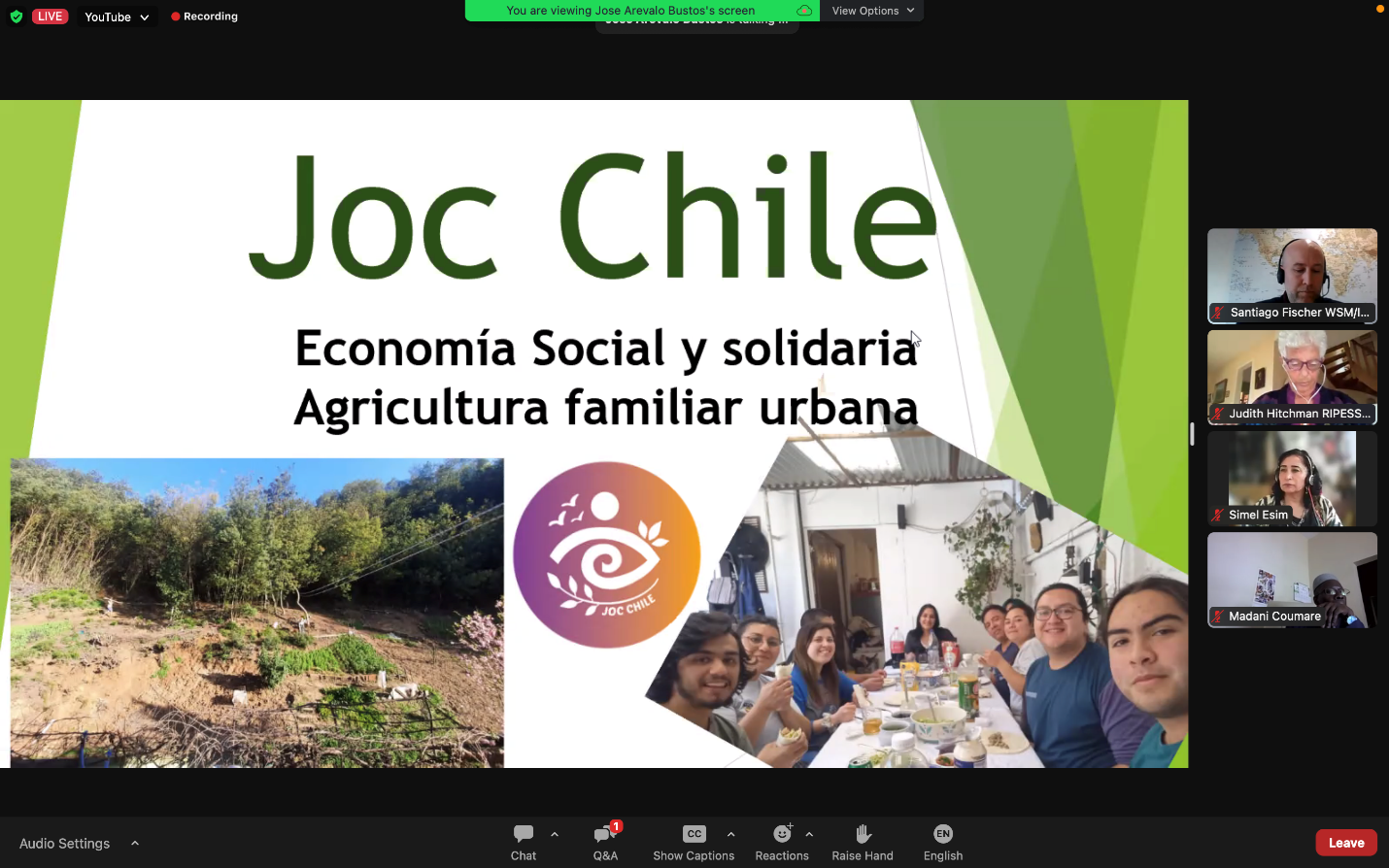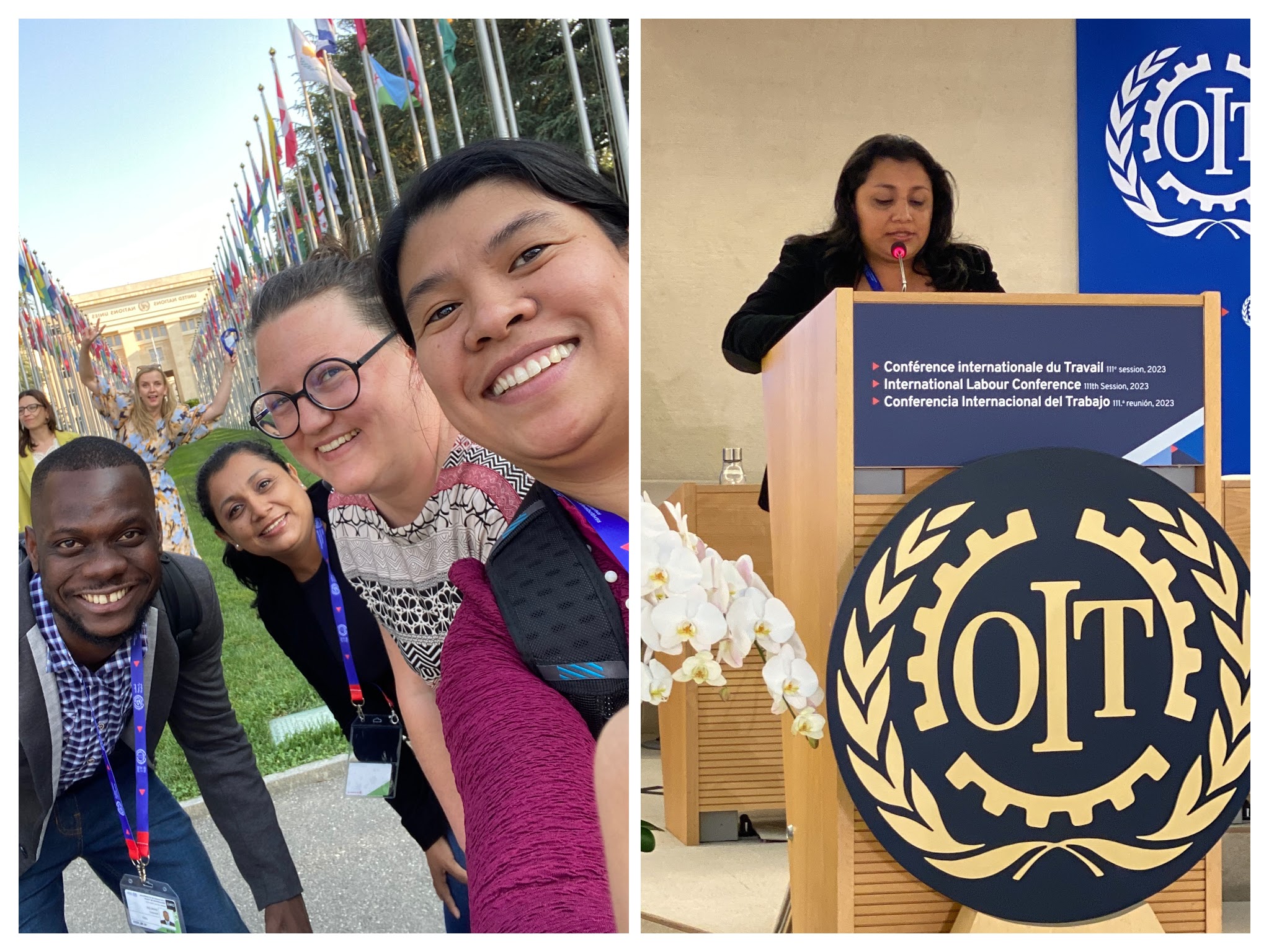
On Thursday 23rd February, more than 140 participants joined the webinar on “Future opportunities and challenges for the Social and Solidarity Economy” which was organized by INSPIR/WSM, RIPESS, WEIGO and the IYCW. We first discussed the future challenges for the different SSE actors (civil society, trade unions, small scale SSE collective and cooperative producers and employers, ILO and other UN institutions, states, regional bodies, local authorities). These discussions were based on the 2022 International Labour Conference’s General Conclusions and the International Labour Organization Action Plan.
First, we asked participants to define the Social and Solidarity Economy with one word. The answers were: “humanity, solidarity, democratic economy, social purpose, sharing of wealth, contributory, human centered, reparative, collective ownership, sustainable, possible, community, non-profit, economic sustainability, post-capitalist, cooperation, principles, equality, values, alternative, future, support, just, co-construction.”





 English
English  Español
Español  Français
Français